History
The Westbury community of Johannesburg is a predominantly coloured community that has endured a turbulent history. Due to the legacy of Apartheid and the nature and constraints of both the previous and present political administrations, the community still suffers from a number of socio-ecologic ills. The main issues are high unemployment, poor housing, poor health, poverty, gang violence and drugs.
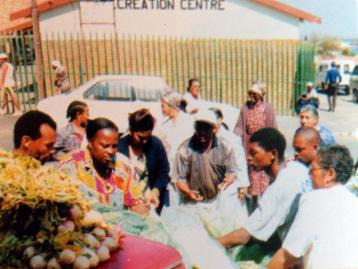
Within Westbury, a number of small self-help groups have risen to combat the effects of the social ills. A major catalyst force for change is the Westbury Community Development Centre (WECODEC). Spearheaded by a of young people – many of who were key role players in gang activities – the formation of WECODEC in 1998 became a turning point in the history of the Westbury and surrounding communities.
In the same year, WECODEC negotiated the first reconciliation between the rival gangs. This has resulted in a significant drop in violent crime. The team began to initiate self-sustaining projects designed to achieve the collective aims of poverty alleviation, skills development and social upliftment.
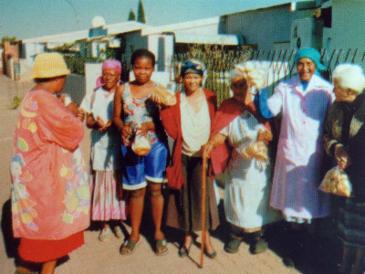
Today, the centre hosts a number of activities and resources including computer training, upgrading and maintenance, an internet-enabled resource centre, a library, a crèche, women’s groups and prayer groups.
WECODEC has become a beacon of inspiration for the community and now plays a critical role in representing the community both within and externally to all strata and society.
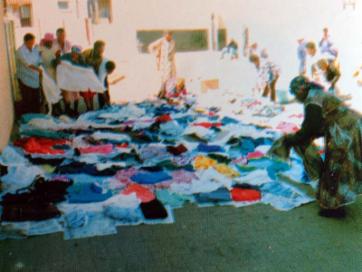
Through persistent effort, the team behind WECODEC has secured support and recognition from Government ministers, the private and NGO sector. Journalist and writer, Dr Don Mattera has been instrumental in the development of the project. As a leading figure in the struggle against apartheid, his personal commitment to the development of Westbury has inspired the hearts and minds of the community.
Objectives
- Skills development
- Social upliftment
- Alleviation of poverty
- Social responsibility
- Empowerment
- Job creation
Vision
To act as a catalyst agency, working in partnership with the community, to achieve collective goals of poverty alleviation, skills development and social upliftment.
Philosophy
- Collective action and collective responsibility = collective advancement
- Consultative, all-inclusive approach
- Strive for partnerships with government, the private and NGO sector for medium to long-term sustainability
- Strength through unity – ubuntu
Values
- Lead by example
- Be accountable
- Work to enrich the moral fabric of our community
Current
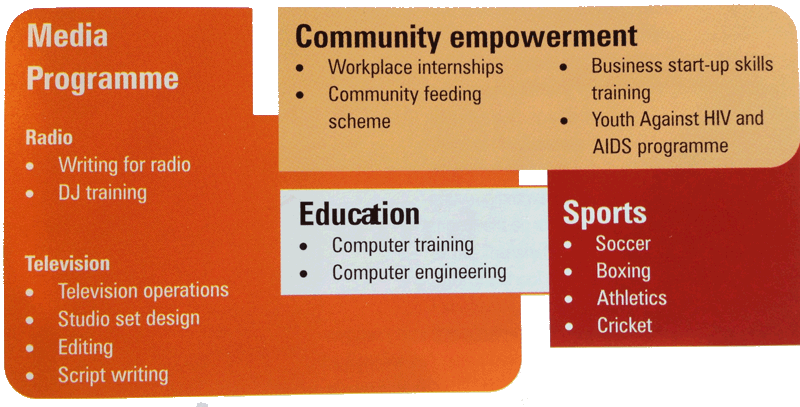
Community
Feeding scheme
WECODEC currently operates an extended ‘soup kitchen’ within Westbury and surrounding squatter camps. Through donations of food from the community and grocery suppliers, over 1000 families are fed daily through this scheme.
School partnership
Through liaison with local schools, WECODEC encourages the schools to run feeding schemes on their behalf to ensure that school children begin the day with food in their stomachs. Currently, the children receive food from the Centre but there is no guarantee that they return to school. In order to counteract this behaviour, the schools are encouraged to feed the children on-site so that teaching can begin directly afterwards.
Homework Club
Due to prevailing high illiteracy rates amongst the parents within the community, school children often lack adequate educational and moral support for their schoolwork. WECODEC currently hosts an after-school homework club run by volunteers, six days a week.
In the medium to long term, it is envisaged that the children’s educational performance will dramatically improve and so increase the likelihood of further success after matriculation.
Personal Grooming Programme
The WECODEC team are currently revamping the sanitation facilities previously built to cater for the hostel dwellers of the building. Once fully operational, the facilities will provide for much needed personal hygiene resources within the community.
Community members will be able to bath and groom themselves as part of the programme. WECODEC plans to involve parents and young people to teach the value of personal grooming within the community. This will in turn stimulate self-pride and contribute to nurturing strong self-esteem among the underprivileged Westbury community.
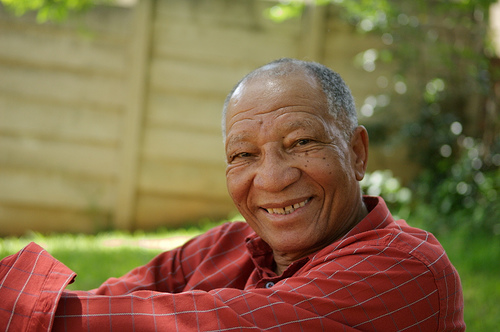
Quotes
ADDRESS BY THE MINISTER OF COMMUNICATIONS, DR IVY MATSEPE-CASABURRI, TO THE NATIONAL ASSEMBLY, ON THE OCCASION OF THE BUDGET VOTE OF THE DEPARTMENT OF COMMUNICATIONS, Cape Town, 29 May 2003
[...]
Honourable Members,
Human Experience
I would like to share with you the experiences of the community of Westbury in Johannesburg and how they have come together to change their lives. Westbury has a tragic history of gang violence. It took the genuine care and ingenuity of community leaders, especially through the efforts of Don Mattera and Joseph Cottey and many others to bring the warring youth together through the establishment of the Westbury Community Development Centre, which introduced the use of ICTs. The results have surpassed all expectations.
Members of this previously distressed community acted in concert to reclaim their community, restore their dignity and to take their destiny in their own hands. Youth were taught computer, television and production skills. Some have prospered to careers as production managers, producers and directors.
[...]
I would like to pay tribute to mentors such as Joseph Cotty and some of the Westbury group who are with us today for the good work they have done as true community builders and for making a difference.
Remarks by His Excellency President Jacob Zuma, the Grand Patron of the National Orders, on the occasion of the awarding of the National Orders Awards, on Freedom Day, Presidential Guest House, 27 April 2012
[...]
Good evening,
I greet you all on this historically important day of our national calendar, the South African Freedom Day, in the name of our freedom, peace, democracy, unity, national reconciliation and nation building.
Some of you know the story. Some of you have lived through the story. Some of you have heard the story. Some of you are part of the story. Some of you are the story.
The story of our journey from an apartheid South Africa, to a free, non-racial, non-sexist and democratic South Africa is what we are celebrating today.
Those of you who are not familiar with the story of our journey, let me jog your memories.
Because in the words of one of our South African writers Don Mattera, Memory is the Weapon, he writes: “But there is nothing that can be hidden from the mind. Nothing that memory cannot reach or touch or call back. Memory is a weapon. I knew deep down inside of me, in that place where laws and guns cannot reach nor jackboots trample, that there had been no defeat. In another day, another time, we would emerge to reclaim our dignity and our land. It was only a matter of time and Sophiatown would be reborn.” (1). (p. 152).
But, Don Mattera was not just talking about the forced removals of the people of Sophiatown, he was also reflecting on the general struggle going on in South Africa at the time, and the hope and determination of the people to be free.